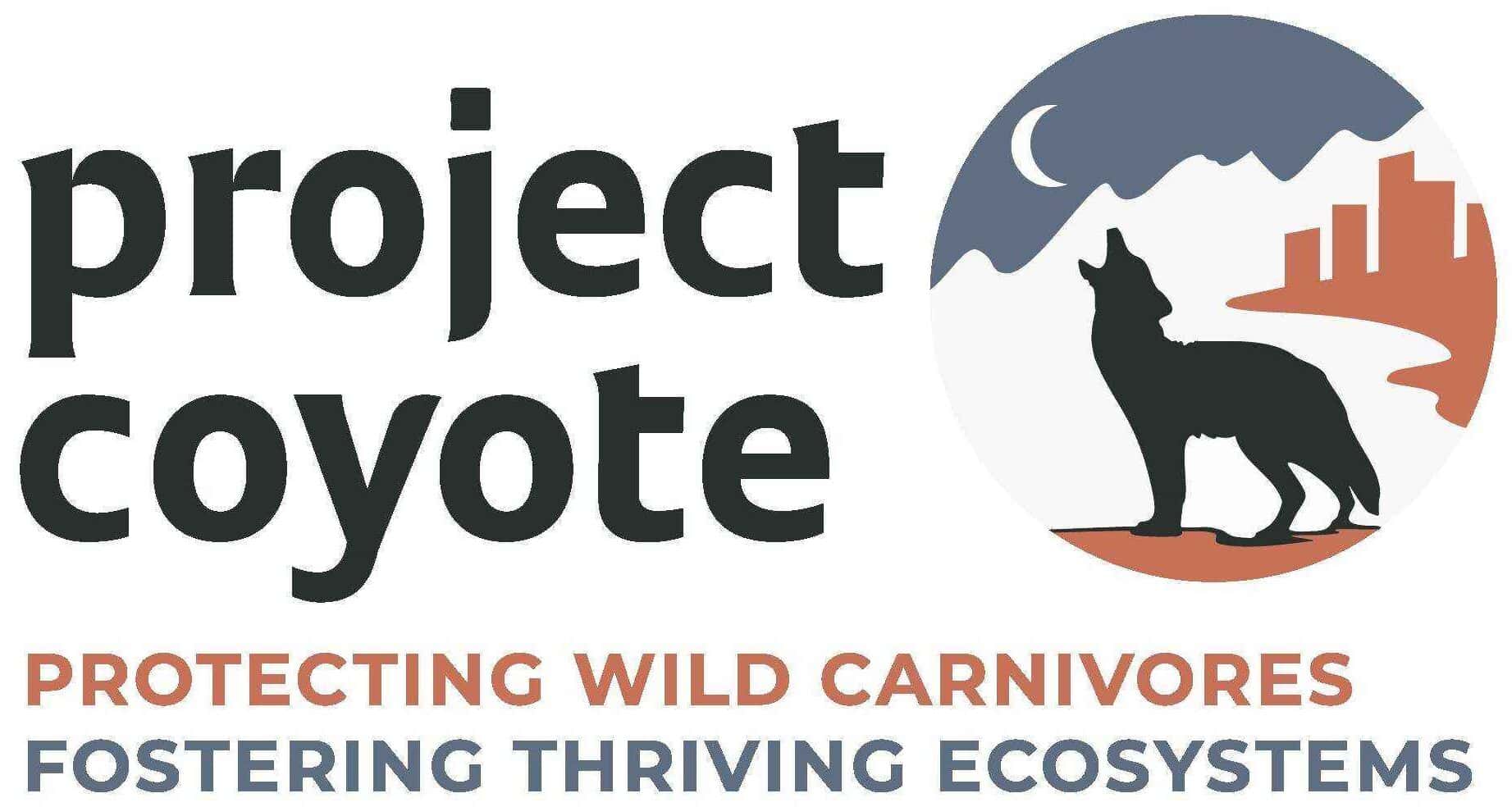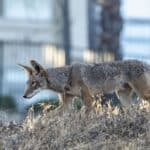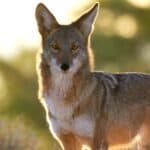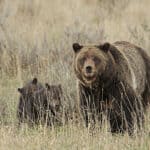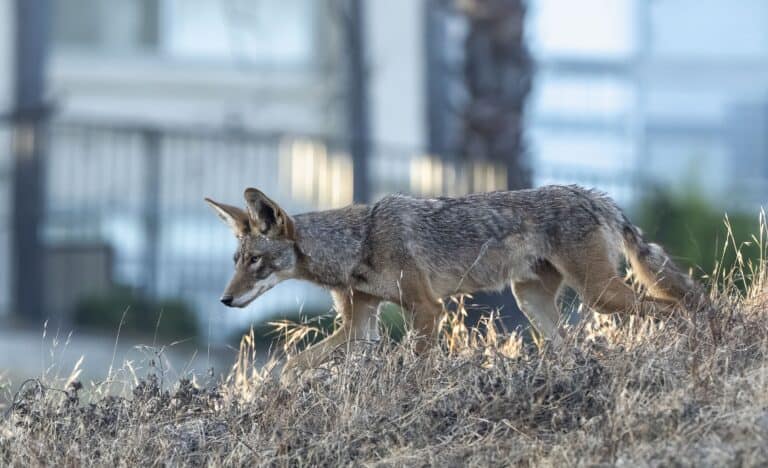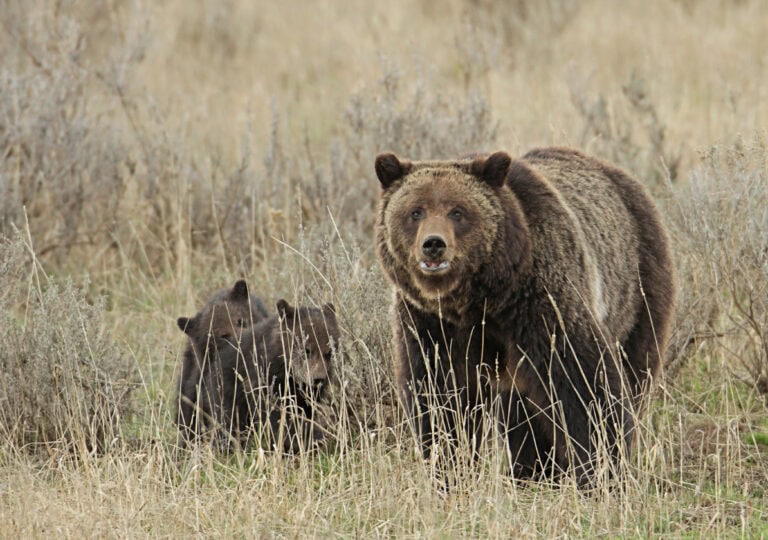Comment period closes January 31
The Michigan Department of Natural Resources (DNR) is updating their 2015 Wolf Management Plan. This is an opportunity to speak up for wolves in Michigan and shape the DNR’s wolf management plan for the future protection of wolves. You do not have to be a Michigan resident to provide input.
Let the DNR know you DO NOT support a wolf hunt!
Here are 3 ways you can speak up:
- Submit comments through DNR’s online survey tool.
The survey will start by asking you how satisfied you are with various goals and strategies of the plan. Suggested answers are below but if you feel differently, then please answer how you prefer. Following the satisfaction scale will be a text box for comments. We have provided suggested comments in the section below. There is no word limit on the text box, so please personalize the suggested comments below. Be sure to submit your written comments before January 31. - Invite others to engage by sharing this alert with friends and family.
- Write letters to the editor of your local newspaper asking readers to speak up for wolves.
You can submit letters now until the draft update is complete (likely June 2022), when there will be another opportunity to comment.
Suggested comments are listed in the order of the online survey form questions. We have added our suggestions for what we recommend that you select on the survey scale, from Satisfied to Unsatisfied, in parentheses after the question title description.
- Viable wolf populations (Somewhat Dissatisfied)
- Facilitate wolf-related benefits (Somewhat Dissatisfied)
- Minimize wolf-related conflict (Somewhat Dissatisfied)
- Science-based management (Somewhat Dissatisfied)
- Text box: 1.Wolf populations should be allowed to self-stabilize based on biological carrying capacity and properly occupy their ecological niche. DNR should not manage wolves to an arbitrary number. I support the language of the plan which states, “This plan does not identify a target population size, nor does it establish an upper limit for the number of wolves in the State.” 2. The public and lawmakers should understand the benefits wolves provide to ecosystems and people. However, DNR has not pursued this goal enough and should increase its efforts to promote the ecological, cultural, and intrinsic value of wolves. 3. The plan states that “wolf-related conflicts can be best handled on an individual basis,” which I support. However, DNR should increase its efforts to educate the public on perceived threats to safety, carnivore science, and how producers and hunters can avoid conflict with wolves using nonlethal best practices. 4. DNR needs to include and utilize social science research in their education efforts.
- Increase public understanding of wolves (Somewhat Dissatisfied)
- Text box: DNR needs to improve their relationships with wolf advocacy groups as these groups focus on education, awareness, and coexistence with wolves. DNR should look to improve their reporting of wolf management, population sizes, wolf mortalities and causes, and confirmed depredation and conflict spots. It should also seek to address false or misleading information about wolves in the media. Lastly, DNR needs to include information on wolves in its hunter education course, as well as penalties for poaching.
- Research (Somewhat Dissatisfied)
- Text box: DNR should invest in research to assess the impact wolves have on disease management in deer, elk, and moose. Greater transparency and reporting are needed regarding the results of DNR research and surveys.
- Wolf regulations and enforcement (Somewhat Dissatisfied)
- Text box: DNR should investigate ways to increase law enforcement for wolf poaching during hunting seasons as research shows that poaching increases during these times. Fines for poaching or killing a wolf should be on par or similar to those for illegally killing deer, elk, or moose.
- Prey populations (Somewhat Dissatisfied)
- Text box: Weather and human hunting have a greater impact on deer numbers than wolves do. Hunter information, such as education courses, harvest reports, and the Deer Hunter Digest publication should include information on predator-prey dynamics and the role of wolves in maintaining a healthy ecosystem.
- Habitat (Somewhat Dissatisfied)
- Text box: DNR should develop relationships with large private landowners and logging companies to protect land that links wolf habitat patches. As wolf populations continue to grow to a healthy level, individuals will disperse across the landscape. Protecting dispersal paths and minimizing disturbances to den and rendezvous sites is key to minimizing conflict and protecting wolves and humans.
- Disease (Somewhat Dissatisfied)
- Text box: DNR should increase its reporting and transparency around diseases, parasites, and other wolf-related mortality or health issues.
- Social Carrying Capacity (Very Dissatisfied)
- Text box: DNR needs to increase its efforts on wolf public awareness campaigns. It should be actively working to correct wolf misinformation. Additionally, wolf populations should not be managed at so-called acceptable social levels, as this will inevitably create arbitrary target population numbers, overmanage wolves and undermine their ability to contribute to ecosystem health and function.
- Positive wolf-human interactions (Very Dissatisfied)
- Text box: DNR should be actively promoting wolves, their benefits to humans and nature, and how humans and wolves can coexist. DNR should not be allowing social tolerance to lower population numbers below biological carrying capacity and natural mechanisms of self-regulation.
- Actual and perceived threats to safety (Very Dissatisfied)
- Text box: DNR should educate the public on non-lethal ways to minimize conflict with wolves, such as not feeding deer, bringing domestic animals inside, and removing other attractants. DNR needs to increase its efforts to share fact and science-based information on wolves and human safety.
- Livestock depredation (Very Dissatisfied)
- Text box: DNR should continue educating and providing support to producers on non-lethal conflict reduction strategies. DNR should NOT give producers carte blanche to remove depredating animals as they are not properly trained in targeted lethal removal. Research in Michigan has shown that even targeted lethal removal increases the risk of wolf predation in adjacent properties, and that non-lethal methods do not have such effect. Moreover, two non-lethal methods of conflict mitigation, fladry and guardian dogs, have been proven effective through research in the state. I do not support objective 6.10.4.
- Captive wolves and wolf-dog hybrids (Somewhat Satisfied)
- Text box: DNR should continue to support and enforce the ban on owning wolf-dog hybrids.
- Wolf hunt (Very Dissatisfied)
- Text box: I do not support the hunting of wolves for any reason. Wolves value their own lives and wellbeing. They pose very little threat to humans, prey populations, or human livelihoods. In fact, wolves provide numerous benefits ecologically, socially, and economically. Wolves should be respected as part of our community.
- Final Comment: The Michigan public has repeatedly told DNR they do not support the hunting of wolves. DNR should not now, or ever, propose public hunting of wolves. The Michigan Wolf Management Plan has sound goals and objectives. However, DNR needs to increase efforts in raising social awareness and understanding of wolves. Partnering with advocacy and education NGOs, posting information on their website, and correcting misinformation will help DNR reach its goals. Lastly, DNR needs to increase penalties and enforcement of illegal wolf killing, particularly during hunting seasons.
Thank you for acting today to protect Michigan’s wolves!
Camilla H. Fox
Founder & Executive Director
Michelle Lute, PhD
National Carnivore Conservation Manager
